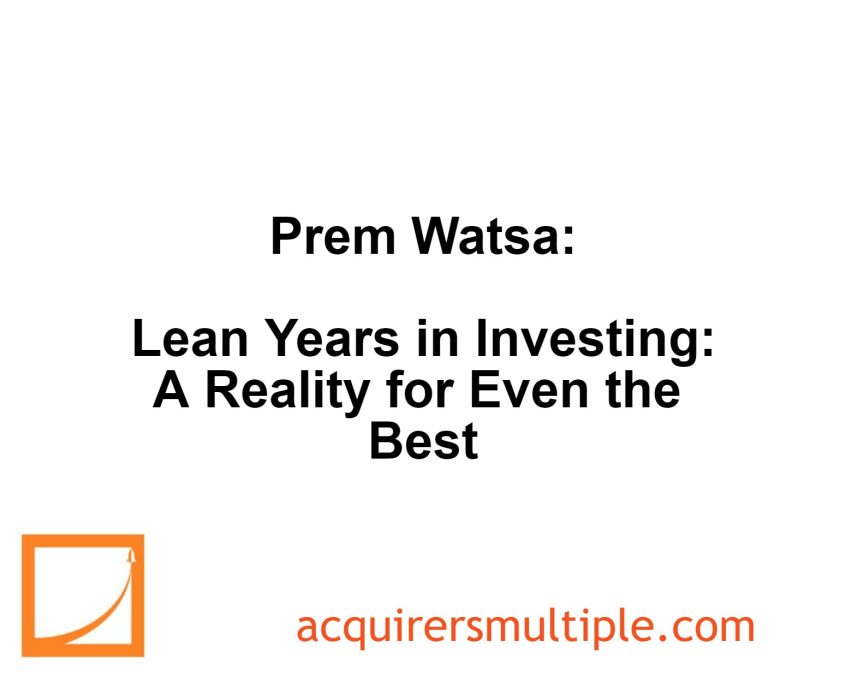In his 2000 Fairfax Financial Shareholder Letter, Prem Watsa discusses Fairfax’s underperformance, noting that for the first time in two consecutive years, the company did not achieve a return on equity above 20%, earning only 4.1% in 2000.
The company’s low stock price attracted “deep value” investors as it appeared undervalued. Despite these short-term setbacks, Watsa emphasizes Fairfax’s commitment to long-term growth and resilience, highlighting its historical success with a compounded annual growth rate of 37% in book value per share and 33% in stock price.
He remains optimistic about the company’s future prospects, stressing the importance of long-term focus over short-term fluctuations.
Here’s an excerpt from the letter:
I was too optimistic! For the fourth time in 15 years and the first consecutive two year period, we did not earn a return on equity in excess of 20%. We earned 4.1% on shareholders’ equity in 2000 (versus 11.4% for the TSE300) —another year of very low returns on equity and again, for the second year in a row, a return less than the TSE300.
Our low stock price attracted many ‘‘deep value’’ investors. For most of 2000, Fairfax was worth more dead than alive and, given our results, it was easy to see why! Having admitted to very disappointing results in the last two years, I want to remind you again that since we began in September 1985, our company has always been run for the long-term.
We have stressed many times over the years and more recently in our November 1999 letter to you, our shareholders, that ‘‘we will accept short term volatility in our earnings for better long-term results’’. While the future is always uncertain, I continue to believe that the long-term prospects for Fairfax have never been brighter.
Before discussing 2000 (easier to discuss the past than the present!), let me reiterate Fairfax’s excellent long-term track record which has been achieved during the longest and toughest down-cycle in the history of the property and casualty business. Book value per share has compounded at 37% annually, while our stock price, even after the recent declines in 1999 and 2000, has compounded at 33% annually.
You can find a copy of the letter here:
Fairfax Financial 2000 Annual Shareholder Letter
For all the latest news and podcasts, join our free newsletter here.
Don’t forget to check out our FREE Large Cap 1000 – Stock Screener, here at The Acquirer’s Multiple:



